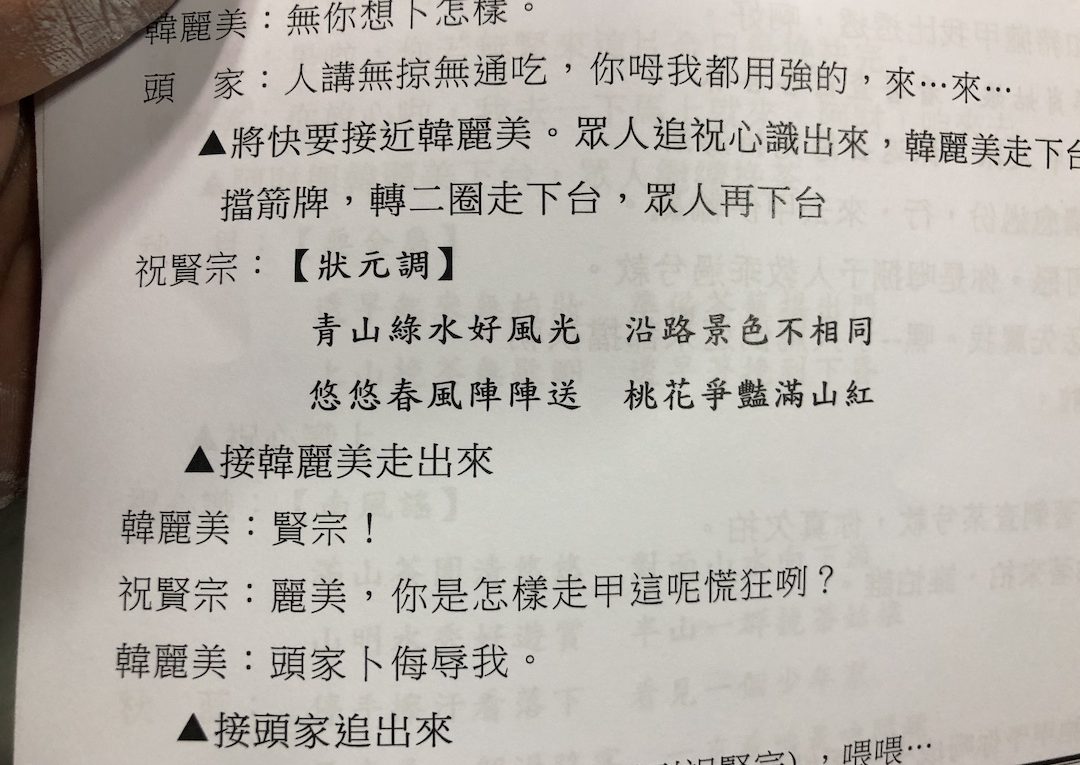Hong-Kai Wang: Singing is Allowed during Class
5 episodes in total (Duration: 15 minutes per episode.)
Singing is Allowed During Classis a research-based projectwhich seeks to recast “radio”—as a space, a medium and a type of technology— into some kind of classroom. It invites listeners/audience to probe into how listening and singing can come together and generate various modes of studying and knowledge production and dissemination.
The first phase of the research is a cooperative effort with the legendary Taiwanese Opera performer/educator Liao Chiung-Chih. In a singing lesson prerecorded to be broadcast, Liao shares how Taiwanese operatic performances are embodied as a form of life, knowledge sharing, labor and aesthetic practice in the colonial and post-colonial times of Taiwan. In so doing, we hope to use radio as a critical pedagogical tool.
The resulting recording consists of four episodes. Over the course of the episodes, in dialogue with Hong-Kai Wang, Liao gradually tells of her involvement in Taiwanese Opera radio production in the 1950s, ranging from sonic productions at the recording studio, technical division of labor, listening practice without scores, to improvising without scripts. In the meantime, she teaches us to sing a never-publicly-performed Taiwanese Opera radio piece titled Night of Looking Homeward.
Special Thanks: Liao Chiung-Chih, Chang Meng-I, ShinTrun Taiwanese Opera Troupe, Chi-Jen Chang, Cheng-Keng Chen, Yu Yuan-Kent, Yu Hui-Chen, NG Zhi Xien, Kuo Cheng Da, Wan Yun Lo, Phuan Thai Meng, Shiu Shiou-Hau, Chen Yi Zhu, Chia-Nuan Chen, Maggie Chang, Shirley Liao, Zhang Jingying
Hong-Kai Wang
Born in Huwei, Taiwan, Hong-Kai Wang’s research-based practice confronts the politics of knowledges lost in colonial and diasporic encounters at the intersection of lived experience, power, and “listening.” Through experimental modes of sonic sociality, her multidisciplinary work seeks to conceive of other time-spaces that critically interweave the production of desire, histories of labor, economies of co-habitation, and formations of knowledge. Wang has presented her practice internationally at Theater Commons Tokyo 2019, Sculpture Center New York, dOCUMENTA 14, Taipei Biennial 2016, Liquid Architecture, Museum of Modern Art New York, among others.

